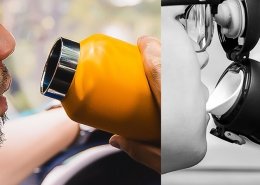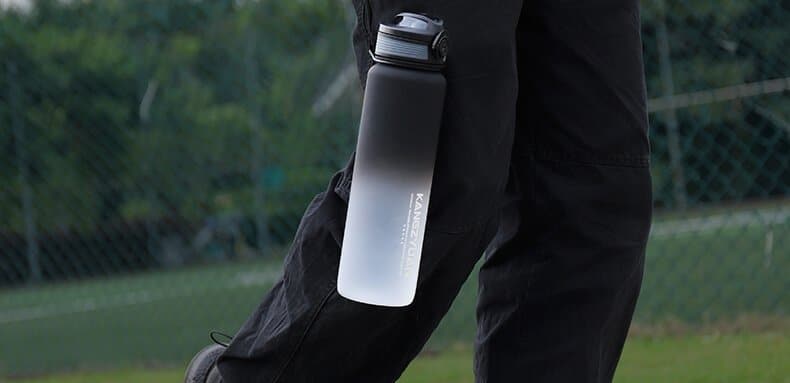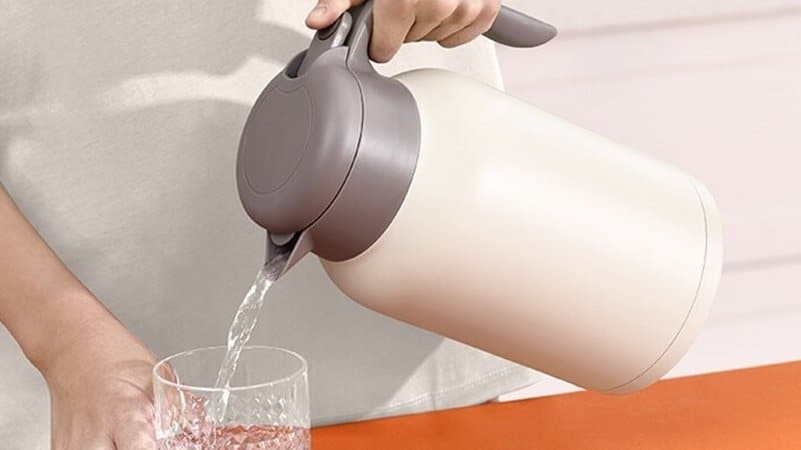How To Choose Reusable Water Bottles? Step by Step Guide
To help you better choose suitable reusable water bottles, we have compiled some things you need to consider when choosing a reusable water bottle.
Last Updated on March 11, 2024 by Tina ShaoConsider Materials
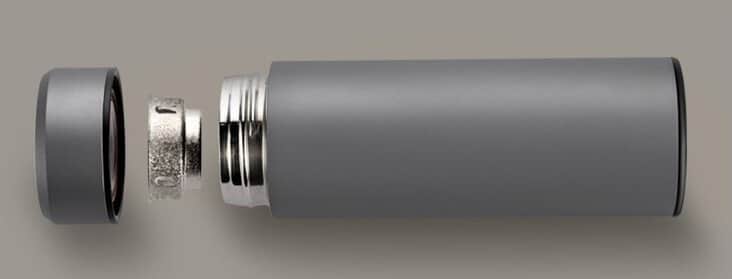
Reusable Water Bottles come in many different materials, with pros and cons. Here is a review of the most popular materials used to make reusable water bottles:
- Plastic reusable water bottles are the cheapest option but are not very durable. They also can taste like plastic and need to be replaced often.
- Stainless Steel Reusable Water Bottles are more expensive than plastic, but they are much more durable and can last for years with regular use, making them an excellent choice if you want a bottle that will last a while.
- Glass Reusable Water Bottles do not impart any flavors on your water and will not leech chemicals into it, making them safe for all ages, including babies!
- Aluminum reusable water bottles are lightweight and durable. It will not shatter like a glass bottle and can be crushed easily to fit into a tight space, such as your backpack or purse.
- Bamboo reusable water bottles are some of the most environmentally friendly markets. They’re made from sustainable bamboo that doesn’t require pesticides or fertilizers to grow well; they’re biodegradable at end-of-life.
- Recycled reusable water bottles – Many companies make their water bottles from recycled plastic (usually polyethylene terephthalate or PET) and encourage users to recycle them again when they’ve outlived their usefulness as beverage holders are put back into circulation once more.
- Titanium reusable water bottles are another durable material that makes an excellent choice for a reusable water bottle. If you want something more substantial than aluminum but lighter weight than stainless steel, it can dent if dropped on a hard surface, so take care with these bottles.
Consider the Purpose
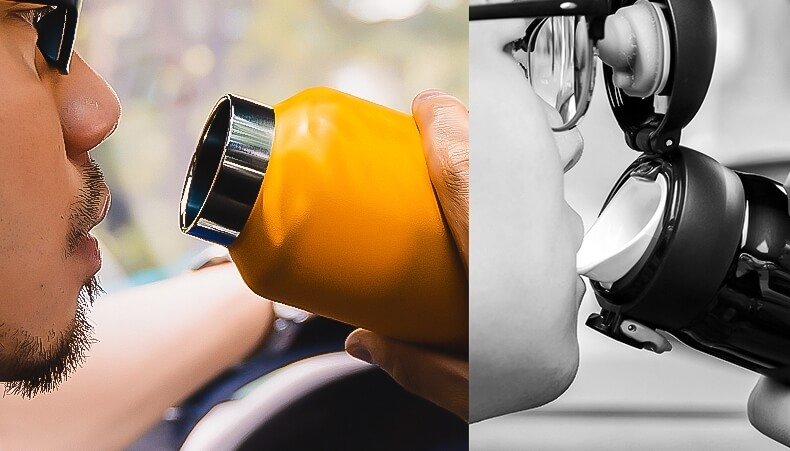
Put some thought into the purpose for which you’ll use the bottle. Is it mainly for carrying water? Or are you hoping to transport other liquids like coffee, tea, or soup?
- Will you be using this bottle to carry water? What about other liquids, like soup, coffee, tea, or alcohol? Are you looking for an insulated bottle to keep your fluids hot or cold? You’ll have to decide if you want stainless steel or a vacuum-sealed bottle. You may also want to consider the weight of the bottle when complete and what it will feel like carrying around all day.
- Will this reusable water bottle be used exclusively in outdoor activities like hiking and camping? Perhaps a more rugged option would serve you better than one designed for office use.
- Is the bottle for carrying other liquids? If you’re having coffee, tea, soup, or hot drinks, you’ll need a bottle that keeps it warm. Insulated bottles are the best way to keep your coffee hot, while glass bottles are best for tea and water. Insulated bottles are also great at keeping alcohol cool if you plan on carrying any of that around.
- Consider how often the bottle will get roughed up. Is it lightweight enough to carry without adding much bulk to your pack?
- Will it fit into a cup holder in your car or bike rack (if applicable)? Does its design allow for easy cleaning?
Consider the Size
The size of the bottle is another essential consideration. Your needs will depend on your activity and how long you plan to be out and about, but it’s helpful to consider how much water you need to carry.
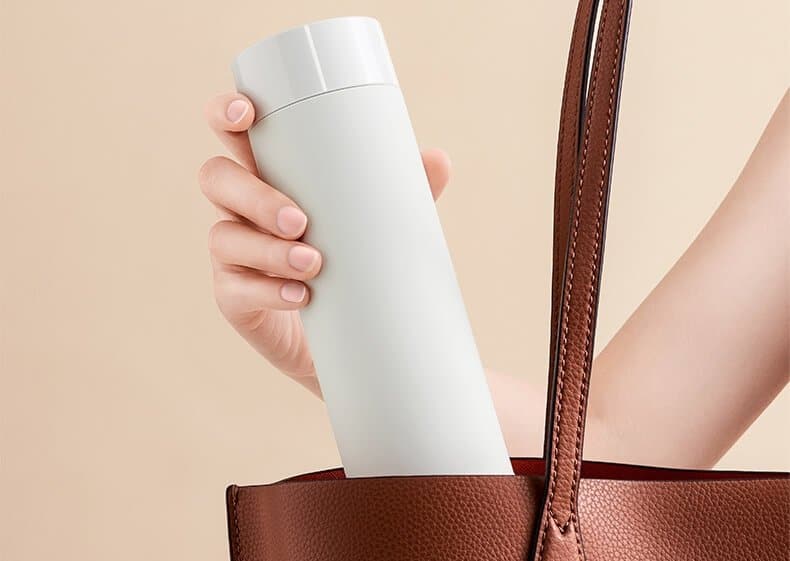
- If you shop for a bottle for day hikes or running errands around town, you probably only need a 12-ounce bottle that fits comfortably in your car’s cup holder.
- However, if you are going on a longer hike or kayaking, you may want something more significant than 24 ounces to have enough water to stay hydrated throughout your outing.
Generally, water bottles come in three sizes: small (8-12 ounces), medium (13-24 ounces), and large (25+ ounces). It would help to choose a large bottle for your needs but not so large that it will become unwieldy or take up too much space in your bag.
Here are some examples of what kind of bottle size works best for certain situations:
- Small-size reusable water bottles(about 12oz): This would work well if you plan on using your bottle only at work or school, as they are not very good for hiking or other outdoor activities. However, they can still fit into most cupholders, so they might still be good choices for car trips.
- Medium-sized reusable water bottles are the most popular and come in various shapes and colors. They hold between 20-40 ounces of liquid; this is usually enough for most people’s daily needs without being oversized or heavy when empty.
- Large-size reusable water bottles: If you know your thirst is best quenched by 40+ ounces, look no further than sizeable water bottles! These work well for people who work out regularly or spend lots of time outdoors because they’ll keep you hydrated all day without having to refill often (or at least not as often as smaller bottles).
Consider the Bottle’s Design.
This is one of the most decisive factors in choosing a bottle, so you shouldn’t overlook it. A water bottle must be attractive, durable, portable, easy to clean, and comfortable. Most of these are self-explanatory, but there are a couple that might need some more explanation:
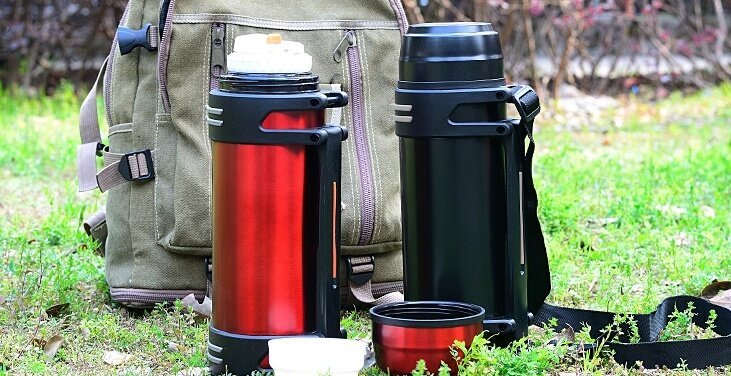
Attractive
You’ll probably have your water bottle with you while on your adventures, so you’ll want something that looks good. As such, you should choose a design that fits your style preferences.
- If you’re an outdoorsy type of person, then maybe go for something rugged and sturdy-looking;
- if you’re more into fashion, then perhaps go for one with colorful designs;
- if you like subtle and understated things, maybe go for something sleek-looking.
Comfort of use
- How does the opening feel against your lips?
- What about its grip—is there anything sharp or annoying about its texture when holding it with your bare hands?
- Is there any straw or spout on its top that’s too stiff or uncomfortable for sipping from?
Consider the Durability
A good quality Reusable Water Bottle is not just used for drinking water; it keeps your body hydrated and will minimize the possibility of getting sick. It should withstand different temperatures without cracking or losing its ability to hold liquid. This will ensure that you do not have to replace the bottle regularly.
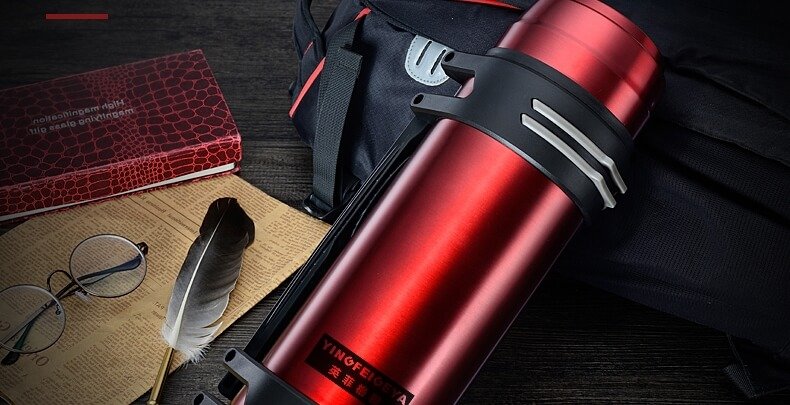
Several factors contribute to determining the durability of a water bottle.
- One is whether it has been treated with a chemical that increases its durability and will help prevent cracks from appearing in it if exposed to extreme heat or cold.
- It would help if you also considered how long it takes for the lid to seal properly after each use, as this will determine how often you need to clean out your Reusable Water Bottle.
- Consider whether you need a stainless steel bottle that can withstand severe wear and tear or if the glass will do fine for your lifestyle.
- Some bottles have more durable materials like silicone on their exterior. If you’ve had bad luck dropping plastic water bottles, investing in one with a protective shell may be worth it.
Consider the Portability.
You’re carrying your water bottle around with you all day. What good is it if it doesn’t fit into your backpack or purse or if you can’t comfortably hold onto it while you run errands?
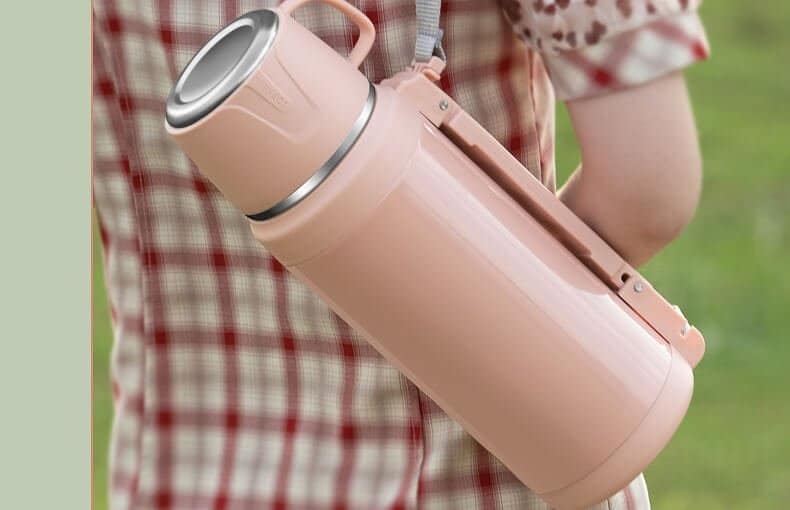
We think a reusable water bottle should be comfortable to carry with you. Look for bottles that are lightweight and easy to hold onto by hand.
When choosing between reusable water bottles, consider portability related to your needs.
- Will you be traveling by plane? Then look into TSA-approved sizes and consider leak-proofing that won’t cause messes in your bag.
- Will you be carrying it around campus all day? Pick something compact but easy enough to hold in your hand while walking between classes.
- Will you be bringing the bottle out into nature? Find one with features like carabiners that allow for hands-free attachment to camping bags or hiking gear.
Consider the Cap.
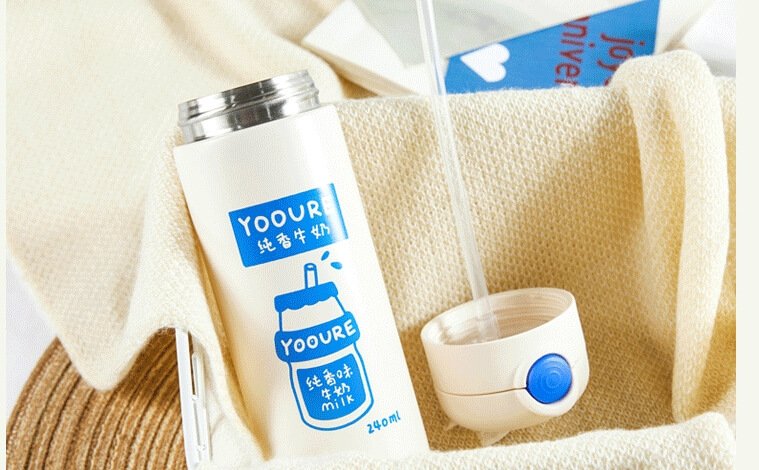
The cap is another essential part of the bottle. Here are some things you should consider when shopping for a reusable water bottle:
- Look for a leak-leak-proof. The last thing you want to do is reach into your backpack and find your phone drenched by a leaking water bottle.
- Make sure the cap is easy to use, as well. You don’t want to struggle with it when quickly getting water in and out of the bottle.
- Does it fit well? While this may seem unimportant, it’s always better to have a snug seal on your reusable water bottles so that nothing leaks out or gets in (and makes your drinking water dirty).
- The cap might be used as a cup—think about how it feels in your hand if this is the case for you!
Consider the Ease of Cleaning.
Reusable bottles often come with parts such as cups and straws that need regular cleaning or replacing. Ensure that all parts can be easily removed and washed by hand or in the dishwasher (if they’re dishwasher-safe). Some bottles also have narrow mouths, making it hard to scrub inside them, so remember this when purchasing.
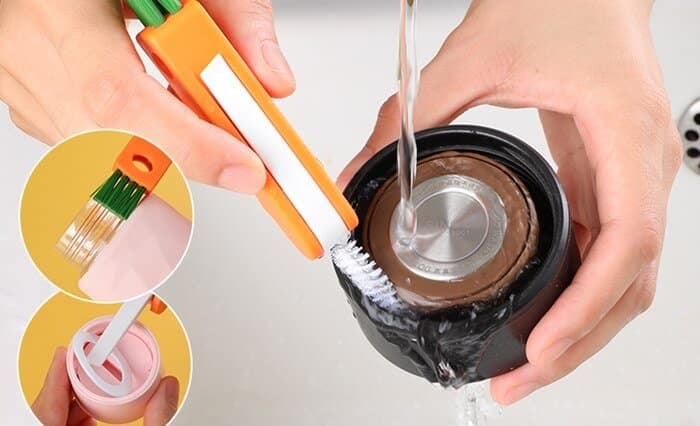
- Look for a water bottle with no cracks, crevices, or hard-to-reach spots. These places are breeding grounds for bacteria and can be challenging to clean.
- Look for a water bottle with a wide mouth, making it easier to clean inside and out.
- Look for a water bottle that is dishwasher safe (although be sure to consult your owner’s manual before placing it in the dishwasher).
- Look for bottles that are BPA-free or free of phthalates; if you’re focused on being green,
Consider Your Budget
Before you start shopping, consider your budget. How much are you willing and able to spend on a reusable water bottle?
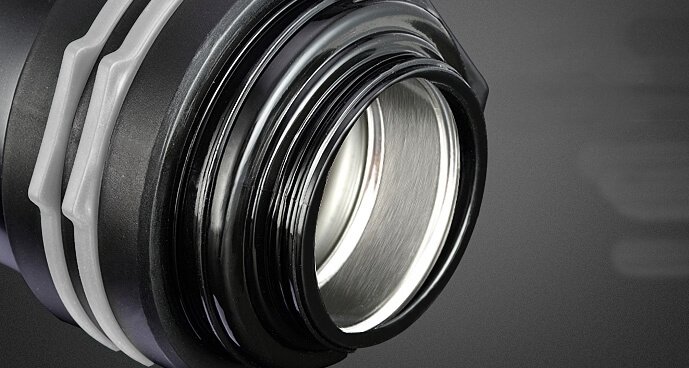
If possible, do some price comparisons between different brands and models, keeping an eye out for the best features within your budget.
The main factor in choosing a reusable water bottle will be the budget for many people. Water bottles are available at a wide range of prices, from under $10 to over $100.
- If your budget is limited, plastic bottles will be your best bet. These water bottles are durable and affordable.
- Glass water bottles are typically slightly more expensive than plastic ones. To help protect your glass bottle against breakage, consider buying one with a silicone sleeve or case.
- Metal Reusable Water Bottles are your best bet if you have enough money.


